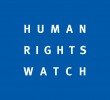Pattern of Unconstitutional Actions
Executive Order 608 follows a pattern of presidential issuances and executive pronouncements of the Macapagal-Arroyo administration containing provisions that are of highly doubtful constitutional or legal basis. The Supreme Court has passed upon some of these issuances, and declared them partly or entirely unconstitutional or illegal:
o Sometime in September 2005 Executive Secretary Eduardo Ermita announced the adoption of the �calibrated preemptive response� policy in lieu of the maximum tolerance policy in the handling of public assemblies. Despite the Executive Secretary�s attempt to withdraw the policy when it was questioned before the Supreme Court, the Supreme Court proceeded to strike down the policy as �having no place in our legal firmament� and as �a darkness that shrouds freedom�, adding that it �merely confuses our people and is used by some police agents to justify abuses�.
o On 28 September 2005 President Macapagal-Arroyo issued Executive Order No. 464 (EO 464) providing guidelines for the appearance of executive officials in legislative inquiries. The Supreme Court held that the EO is invalid insofar as it severely frustrates the power of inquiry of Congress for allowing executive officials to claim executive privilege without stating any specific basis of such claim, and for allowing subordinate officials to exercise executive privilege, otherwise reserved only for the President, without the President�s explicit authority.
o On 24 February 2006 President Macapagal-Arroyo issued Proclamation 1017 declaring a state of national emergency. Under the proclamation President Macapagal-Arroyo commanded the Armed Forces of the Philippines �to maintain law and order throughout the Philippines, prevent or suppress all forms of lawless violence as well any act of insurrection or rebellion and to enforce obedience to all the laws and to all decrees, orders and regulations� promulgated by her personally or upon her direction; and declared a State of National Emergency �as provided in Section 17, Article 12 of the Constitution�. While the Supreme Court sustained the proclamation insofar as it the exercise of the president�s calling-out power for the armed forces to assist her in preventing or suppressing lawless violence, it declared the proclamation unconstitutional insofar as: (1) it commands the enforcement of all decrees, orders and regulations promulgated by her personally or upon her direction, and (2) it presumes presidential authority to exercise the emergency powers of taking over or directing the operation of any privately-owned public utility or business affected with public interest. On the first point the Supreme Court said that the clause, which was lifted from President Marcos�s Proclamation 1081 declaring a state of Martial Law, is unconstitutional for granting President Macapagal-Arroyo the authority to promulgate decrees, which is a legislative power peculiarly vested with the Legislature. On the second point, the Supreme Court emphasized that under the constitution the exercise of emergency powers requires a delegation from Congress.
Unfortunately for us ordinary citizens, until an unconstitutional initiative is declared void by the Supreme Court, we suffer the injury of its application. The CPR has been used as basis for violent dispersals of peaceful assemblies, in violation of the right to peaceably assemble. EO 464 has been used to avoid the appearance by executive officials in legislative inquiry, depriving the public of their right to information. As the court stated, �to the extent that investigations in aid of legislation are generally conducted in public, any executive issuance tending to unduly limit disclosures of information in such investigations necessarily deprives the people of information which, being presumed to be in aid of legislation, is presumed to be a matter of public concern�. Also, on the basis of Proclamation 1017, illegal warrantless arrests of individuals such as Prof. Randy David, and an illegal warrantless search of the Tribune office and seizure of materials therein, were committed.
Our fate under EO 608 will be no different. Until and unless EO 608 is struck down by the courts or withdrawn by President Macapagal-Arroyo, it will bolster her ongoing efforts to arbitrarily withhold information from the Filipino people, in violation of our right to information on matters of public concern.
Atty. Nepomuceno Malaluan, Action for Economic Reforms
Dr. Florangel Rosario-Braid, Asian Institute of Journalism and Communication
Prof. Luis Teodoro, Center for Media Freedom and Responsibility
Ms. Adelina Alvarez, Center for Community Journalism and Development
Atty. Tanya Lat, Initiatives for Dialogue and Empowerment through Alternative Legal Services
Ms. Rowena Paraan, National Union of Journalists of the Philippines
Mr. Bartholome Guingona, pagbabago@pilipinas
Ms. Jaileen Jimeno, Philippine Center for Investigative Journalism
Mr. Vincent Lazatin, Transparency and Accountability Network
Access to Information Network










